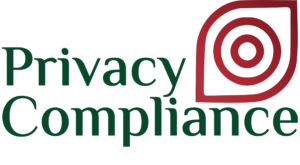[GDPR] the WP29 & EDPB?
The Article 29 Working Party (WP29) is the predecessor to the European Data Protection Board (EDPB), which was established under the General Data Protection Regulation (GDPR). WP29 was an advisory body composed of representatives from the national data protection authorities of all EU member states, as well as the European Data Protection Supervisor. Its primary role was to provide guidance and recommendations on the interpretation and application of the EU Data Protection Directive and other data protection laws.
One of the main differences between WP29 and EDPB is the legal basis for their establishment. WP29 was established under the EU Data Protection Directive, which was repealed and replaced by the GDPR in May 2018. EDPB, on the other hand, was established under the GDPR and is responsible for ensuring consistent application of the regulation throughout the EU.
Another key difference between WP29 and EDPB is the scope of their responsibilities. While WP29 was primarily focused on providing guidance and recommendations on the interpretation and application of the EU Data Protection Directive, EDPB has a broader mandate under the GDPR. In addition to providing guidance and recommendations, EDPB is responsible for promoting cooperation and consistency among national data protection authorities, developing and maintaining a list of processing activities that require a data protection impact assessment (DPIA), reviewing and issuing opinions on draft codes of conduct, certification mechanisms, and other guidelines related to data protection, and monitoring the implementation of the GDPR.
Overall, while WP29 and EDPB share some similarities in terms of their composition and focus on data protection, EDPB has a broader mandate and a stronger legal basis for its establishment. As the primary body responsible for ensuring consistent application of the GDPR throughout the EU, EDPB plays a critical role in protecting individuals’ privacy rights and promoting responsible data handling practices across the EU.

HIPAA PRIVACY RULE: MECHANISMS FOR PERSONAL HEALTH INFORMATION PROTECTION
HIPAA PRIVACY RULE: MECHANISMS FOR PERSONAL HEALTH INFORMATION PROTECTION The Privacy Rule is one of the core rules of HIPAA which governs the conditions, timing, and circumstances under which protected health information (PHI) may be used or disclosed. It establishes standards that grant patients rights over their health data, enhancing their control over its use […]
Learn more

OVERVIEW OF HIPAA RULES ON DATA PROTECTION
OVERVIEW OF HIPAA RULES ON DATA PROTECTION Overview of HIPAA Act and Its Rules The Health Insurance Portability and Accountability Act (HIPAA or the Act) is a U.S. federal law designed to protect the privacy and security of individuals’ health information while facilitating healthcare operations and preventing waste, fraud, and abuse in the healthcare […]
Learn more

INTRODUCTION TO HIPAA: EVOLUTION OF DATA PROTECTION STANDARDS
INTRODUCTION TO HIPAA: EVOLUTION OF DATA PROTECTION STANDARDS The rapid proliferation of information technology has driven the healthcare sector to transition from paper-based medical records to comprehensive electronic health record (EHR) systems. Although paper charts are subject to certain physical vulnerabilities, and despite the convenience and storage capacity afforded by digital platforms, electronic systems confront […]
Learn more